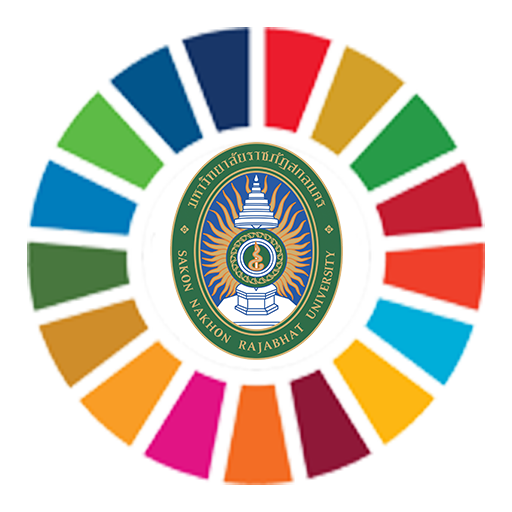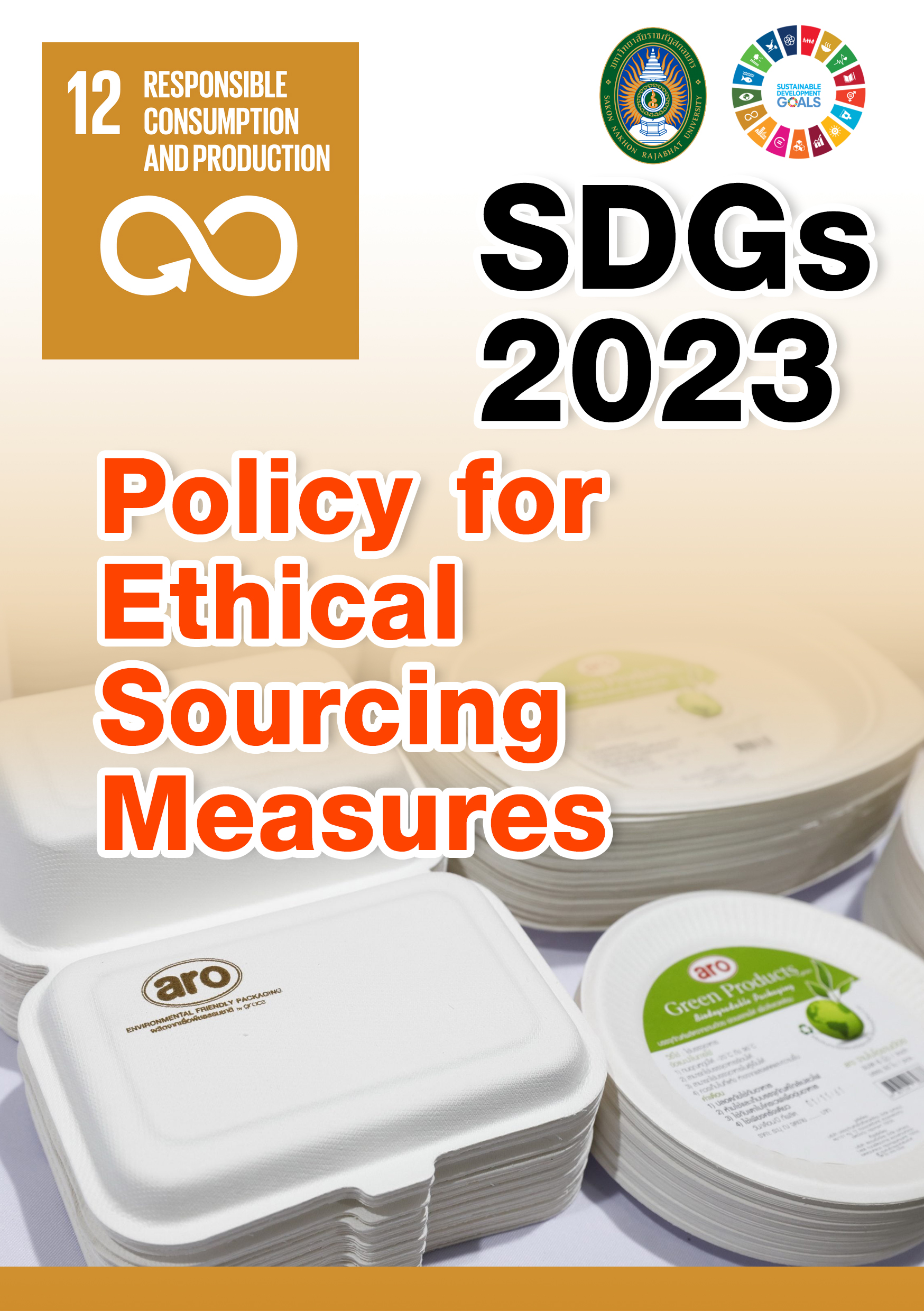The purpose of this policy is to establish a framework for ethical sourcing at Sakon Nakhon Rajabhat University, ensuring that all goods and services procured are sourced responsibly, sustainably, and in alignment with the values of social and environmental stewardship. This policy supports the university’s commitment to fostering a positive impact through responsible procurement practices.
- Policy Statement
SNRU is dedicated to sourcing goods and services from suppliers who adhere to ethical standards, including respect for human rights, environmental sustainability, and fair labor practices. The university aims to support suppliers who operate transparently and align with principles that promote sustainable development and social responsibility.
This policy applies to all procurement activities undertaken by SNRU, including but not limited to, sourcing for office supplies, equipment, construction materials, food, and services. It covers all departments and personnel involved in procurement and supply chain management at the university.
3. Guiding Principles
– Fair Labor Practices: All suppliers must comply with national labor laws and international standards that prohibit child labor, forced labor, and discrimination. Suppliers are expected to provide fair wages and safe working conditions.
– Environmental Responsibility: Suppliers should minimize environmental impacts through sustainable practices, such as reducing emissions, conserving natural resources, and implementing waste reduction strategies. Preference will be given to suppliers with eco-friendly certifications and practices.
– Transparency and Accountability: SNRU seeks to work with suppliers who maintain transparent operations, including clear documentation and monitoring processes that ensure compliance with ethical standards.
– Local and Community Engagement: Priority will be given to local suppliers, particularly those that contribute positively to community development, provided they meet the necessary standards of ethical sourcing.
4. Procurement Measures
– Supplier Evaluation and Selection: SNRU will evaluate suppliers based on their adherence to ethical practices. This evaluation will include assessing suppliers’ policies on labor rights, environmental impact, and ethical conduct.
– Contract Clauses for Ethical Compliance: All contracts will include clauses that require suppliers to adhere to ethical standards. Non-compliance may result in termination of contracts and disqualification from future sourcing opportunities.
– Annual Review and Monitoring: SNRU will conduct annual reviews of its procurement practices to ensure compliance with this policy. Continuous monitoring will be carried out for high-risk categories to ensure ethical standards are upheld.
– Supplier Development Program: The university will support suppliers in improving their practices through training and resource-sharing. This includes guidance on implementing sustainable and fair labor practices.
5. Awareness and Training
– SNRU will provide training sessions for all staff involved in procurement to ensure they are well-versed in the principles of ethical sourcing and understand the importance of responsible procurement.
– Awareness campaigns will be conducted to inform stakeholders about the benefits of ethical sourcing and its role in supporting sustainable development goals.
6. Policy Compliance
– Non-Compliance: Suppliers found to be in breach of ethical sourcing standards may face penalties, including contract termination and disqualification from future partnerships with the university.
– Continuous Improvement: This policy will be reviewed annually, and adjustments will be made as needed to ensure alignment with global best practices in ethical sourcing.
7. Implementation and Accountability
– The Office of Procurement and the Office of Sustainability at SNRU will oversee the implementation of this policy. Regular reports on procurement activities and compliance with ethical standards will be submitted to university management.
– An Ethical Sourcing Committee will be established to handle any concerns or disputes related to this policy and to review high-risk suppliers.
Announcement on January 2023




